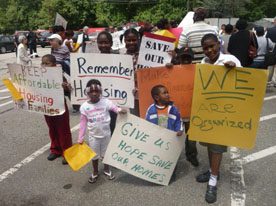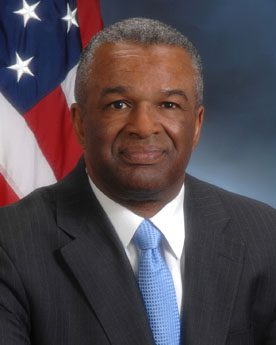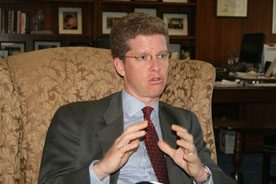Federal Legislation
Rep. Barney Frank’s (D-Mass.) multifamily housing preservation bill, which has been in the works for five years and may be introduced this session, contains a long list of provisions that should help address the situation. The bill would provide enhanced vouchers for the 101,000 families not currently eligible for them in expiring mortgage buildings, and allow conversion of enhanced vouchers back to project-based Section 8 to keep buildings in the affordable housing system. It proposes new tools to address troubled subsidized housing, a range of incentives to encourage owners to keep units affordable, and even funding for tenant organizing. Most of these provisions have widespread support. NAHT estimates that 90 to 95 percent of the bill is “noncontroversial.”
However, owners’ trade associations are opposing three items in the bill that NAHT considers crucial.
Two of these are tenant empowerment measures: First, giving tenants access to information about the operations of their building, such as annual operating budgets, HUD contracts, and HUD management reviews. Ricky Leung, NAHT vice president/East, told Congress in 2008, “Only owners and managers who fail to provide quality service and/or have something to hide should raise any objection to empowering tenants with this information.” But they are, citing privacy concerns.
NAHT also wants tenants to be designated as third-party beneficiaries of HUD contracts, with standing to sue owners if they are violating them.
But NAHT’s top priority is “right of first purchase,” a provision that Frank may take out of the bill due to pressure from owners’ groups, who have threatened to oppose the whole bill if it remains. Similar to the former Title II/VI provisions, the right of first purchase would provide a six-month window during which a tenants’ group or nonprofit purchaser that intended to keep the development affordable would have the right to purchase the building before it went on the open market.
Such a right is in place for federally subsidized rural housing, and for HUD-subsidized housing in Illinois. When New York City tried to pass a similar measure, though, it was struck down by state courts who said it should be implemented nationally.
In early November, 35 organizations, including the Housing Preservation Project, National Alliance of Community Economic Development Associations, National Housing Law Project, and the National Low Income Housing Coalition (NLIHC), sent a sign-on letter organized by NAHT and NLIHC to Frank to encourage him to retain the right of first purchase. “While we continue to support the expansion of voluntary incentives to preserve at-risk housing,” they wrote, “more is needed to ensure an opportunity to preserve certain properties through transfers to preservation purchasers where owners reject generous incentives for properties that are often the best of the inventory.”
While it seems likely that the preservation bill will pass, it remains to be seen whether it will contain these provisions. Meanwhile, new development, which costs significantly more than preservation per unit, is stalled, rental assistance contracts are also expiring, and a flood of predatory equity investments is putting other affordable buildings at risk. It’s clear that the expiring mortgage problem is part of a larger crisis in affordable housing, but at least it has some promising solutions — if Congress follows through.





Comments